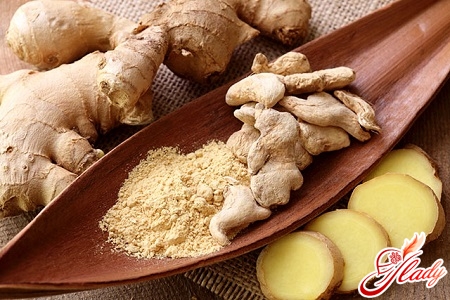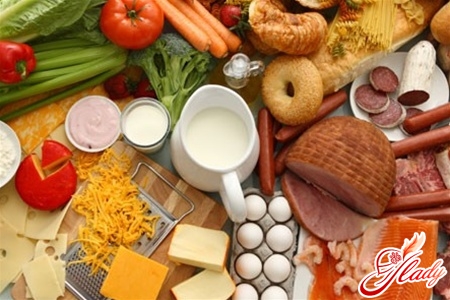 Long winter is a strong stress for the body. We are overcome by fatigue, laziness, drowsiness, bad mood, one by one, various illnesses cling. All these are true signs of vitamin deficiency. So, for example, dryness, peeling, redness of the skin of the face and hands indicate a lack of vitamins A, C, E and Group B. The dull hair color, their loss, fragility of the nails testify to the lack of vitamins of group B and vitamin C, copper, magnesium, iron . The lack of vitamins B2, B3 and B6 causes frequent dermatitis, and for a long time the non-healing wounds on the skin indicate a deficiency of vitamins C, D, and K. How to survive until the end of winter? Yes, it's very simple - to replenish the supplies of vitamins! If you think that the plan for vitaminization of the body has already been carried out for the fruit-berry summer, then you are very mistaken. Our body is not capable, like a camel water, to store vitamins for future use and store them all winter. What vitamins are better for taking in the winter? What to do - buy a vending package with synthetic "elixirs of life" in a pharmacy, or go for "live" vitamins in the store? In winter, this issue is especially relevant, because the main cause of seasonal vitamin deficiency is inadequate nutrition, that is, an elementary lack of vitamins in food. It is no accident that in the countries of the third world and up to this day there are diseases associated with a lack of vitamins - rickets, scurvy, beriberi (chrome) and many others. However, residents of highly developed countries are not insured against beriberi.
Long winter is a strong stress for the body. We are overcome by fatigue, laziness, drowsiness, bad mood, one by one, various illnesses cling. All these are true signs of vitamin deficiency. So, for example, dryness, peeling, redness of the skin of the face and hands indicate a lack of vitamins A, C, E and Group B. The dull hair color, their loss, fragility of the nails testify to the lack of vitamins of group B and vitamin C, copper, magnesium, iron . The lack of vitamins B2, B3 and B6 causes frequent dermatitis, and for a long time the non-healing wounds on the skin indicate a deficiency of vitamins C, D, and K. How to survive until the end of winter? Yes, it's very simple - to replenish the supplies of vitamins! If you think that the plan for vitaminization of the body has already been carried out for the fruit-berry summer, then you are very mistaken. Our body is not capable, like a camel water, to store vitamins for future use and store them all winter. What vitamins are better for taking in the winter? What to do - buy a vending package with synthetic "elixirs of life" in a pharmacy, or go for "live" vitamins in the store? In winter, this issue is especially relevant, because the main cause of seasonal vitamin deficiency is inadequate nutrition, that is, an elementary lack of vitamins in food. It is no accident that in the countries of the third world and up to this day there are diseases associated with a lack of vitamins - rickets, scurvy, beriberi (chrome) and many others. However, residents of highly developed countries are not insured against beriberi.
Vitamins on a plate
For our beauty and well-being answersnormal metabolism, which is possible only if there is sufficient intake of the whole complex of vitamins and microelements into the body. Where can I get vitamins in winter? What should you eat to be beautiful? Let's try to figure it out. First, try adjusting your menu. According to statistics, in winter, Russians often do not have enough vitamin C - ascorbic acid. You can say that this is the most important vitamin. A powerful antioxidant, it plays an important role in the metabolism, increases immunity, forms "hormones of happiness." To make up for the shortage of healing ascorbic acid, lean on kiwi, oranges, chokeberry, tomatoes, Bulgarian pepper. Do not forget about sauerkraut - because there is much more vitamin C in it than in citrus! In addition to ascorbic, in winter we do not receive vitamin B vitamins. As a result, lips dry and lips crack, jaunts appear at the corners of the mouth, hair and nails become brittle, watery eyes. And yet - a person becomes irritable, for no apparent reason breaks down on loved ones, suffers from insomnia. Replenish the body with the missing vitamins will help buckwheat, rice, peas, eggs, sour-milk products, kidneys, liver, heart, nuts, beets. Became worse to see? You do not have enough vitamin A - retinol, which is responsible for visual acuity, but also strengthens the immune system, is involved in maintaining the health of hair and nails. Its sources are milk, eggs, fish, carrots, parsley, dill, sorrel, apricots. Everything falls from your hands, and at work, you can not concentrate on anything? It's time for you to store vitamin E - tocopherol. Vitamin E is the strongest natural antioxidant. It supports immunity, protects cells from damage, slows the formation of free radicals, improves the supply of cells with oxygen, helps cope with high mental stress, protects the body from nervous breakdowns and stresses. Tocopherol is found in spinach, cabbage, lettuce, beef liver, lean meat, eggs, vegetable oil.
And now - to the pharmacy!
To replenish our stock of vitamins and minerals, wemust be daily. But, unfortunately, based on only a healthy diet to do this is very difficult. Firstly, it is almost impossible to organize your diet with such diverse products. Secondly, one can not be 100% sure of the fact that the products left useful substances after delivery, long-term storage and heat treatment. An additional intake of vitamin preparations is necessary. Now they are sold in huge quantities in any pharmacy without a prescription, but this does not mean that they should be taken uncontrollably. It would be wiser if the doctor picked it up. Ask your doctor what vitamins to take in winter for you. It is believed that the body should receive 2/3 of vitamins with the "right" products and only 1/3 replenish it with chemicals. It is necessary to pay special attention to the content of vitamins in one tablet in accordance with the daily requirement. If one pill contains a daily dose, then take this drug only once every 3 days. 
Beauty from jars
Even with a balanced diet and consumptionvitamin-mineral complexes, we can not provide the skin and hair with enough vitamins from the inside. A jar of cream will help to correct the situation. The content of a sufficient amount of vitamins in the cream can only be said when the concentration of the active substance is so high that it can "work" with the skin. The favorites of cosmetologists among vitamins are vitamins A, E, C and group B. Vitamin A is responsible for the prevention of aging and is included in most anti-aging lines. Vitamin E has a softening effect, is involved in the regeneration of tissues. A recognized leader in the fight against dark circles under the eyes - vitamin C, it also provides a fresh complexion and protects against free radicals. And vitamins of group B restore vital functions of cells. Cosmetic products, which include these vitamins, can be found in almost all recognized cosmetic manufacturers. Some useful tips:
- eat right - give up fast food, reduce to a minimum the consumption of sausages, smoked products, animal fats, white refined flour products;
- take vitamin-mineral complexes;
- Movement is life! Walk more in the fresh air, do sports;
- go to bed not later than 22 hours, before ventilating the room;
- quit smoking, give up alcohol;
- keep a good mood.
Crib. Where vitamins live
A (retinol):
- Pumpkin, carrots, sweet peppers, broccoli, spinach, green onions, parsley, soy, peas, apples, grapes, dog rose, sea buckthorn.
- Fish oil, fish caviar, beef liver, milk, sour cream, butter, cheese, cottage cheese, egg yolk.
B1 (thiamine)
- Wholemeal bread, wheat sprouts, unprocessed rice, oatmeal, asparagus, broccoli, Brussels sprouts, peas, nuts.
- Pork, beef, poultry, liver, egg yolk, fish.
B2 (riboflavin)
- Leafy green vegetables, peas, oat and buckwheat groats, embryos and shells of cereals, yeast, bread.
- Meat, liver, kidneys, fish, milk, cheese, cottage cheese, yogurt, egg white.
B5 (pantothenic acid)
- Yeast, hazelnut, green leafy vegetables, cauliflower, buckwheat and oatmeal, peas.
- Chicken meat, liver, kidneys, heart, fish caviar, egg yolk, milk.
B6 (pyridoxine)
- Yeast, green leafy vegetables, potatoes, corn, cabbage, soybeans, legumes, uncooked cereals, wheat and buckwheat groats, rice, carrots, bananas, avocados, walnuts.
- Meat, fish, liver, kidneys, heart, milk, egg yolk.
B9 (folic acid)
- Carrots, green leafy vegetables, legumes, yeast, bran, barley, oat and buckwheat groats, nuts, oranges, bananas, apricots, melon, pumpkin, mushrooms, dates.
- Liver, meat, egg yolk, milk, cheese, fish (salmon, tuna).
B12 (cyanocobalamin)
- Sea kale, soy, yeast.
- Beef, poultry, liver, kidneys, fish, eggs, milk, cheese.
C (ascorbic acid)
- Citrus, kiwi, leafy green vegetables, sorrel,cabbage (broccoli, Brussels, color, cabbage), bell pepper, potatoes baked in a uniform, black currant, chokeberry, sea buckthorn, hips, cranberries.
D (calciferols)
- Egg yolk, fish oil, caviar, butter, cheese and other dairy products.
E (tocopherols)
- Sunflower, linseed, corn and olive oil, nuts (almonds, peanuts), legumes, soybeans, seedlings of cereals, green leafy vegetables. Egg yolk, liver, milk.
H (biotin)
- Soy, beans, peanuts, mushrooms, potatoes, cabbage, lettuce, onions, carrots, tomatoes, beets, spinach, melon, oranges, apples, rice, barley, bran, wheat.
- Meat, beef liver, heart, eggs, milk, cheese, salmon, halibut, herring, tuna
K (phytomenadione)
- Green tomatoes, hips, spinach, Brussels and cauliflower, oats, soybeans, rye, wheat, green tea.
- Pork liver, eggs.
PP (nicotinic acid)
- Carrots, broccoli, corn flour, peanuts, dates, tomatoes, potatoes, whole-grain foods, wheat sprouts.
- Pork, beef liver, fish, eggs, cheese, milk.
We advise you to read:









